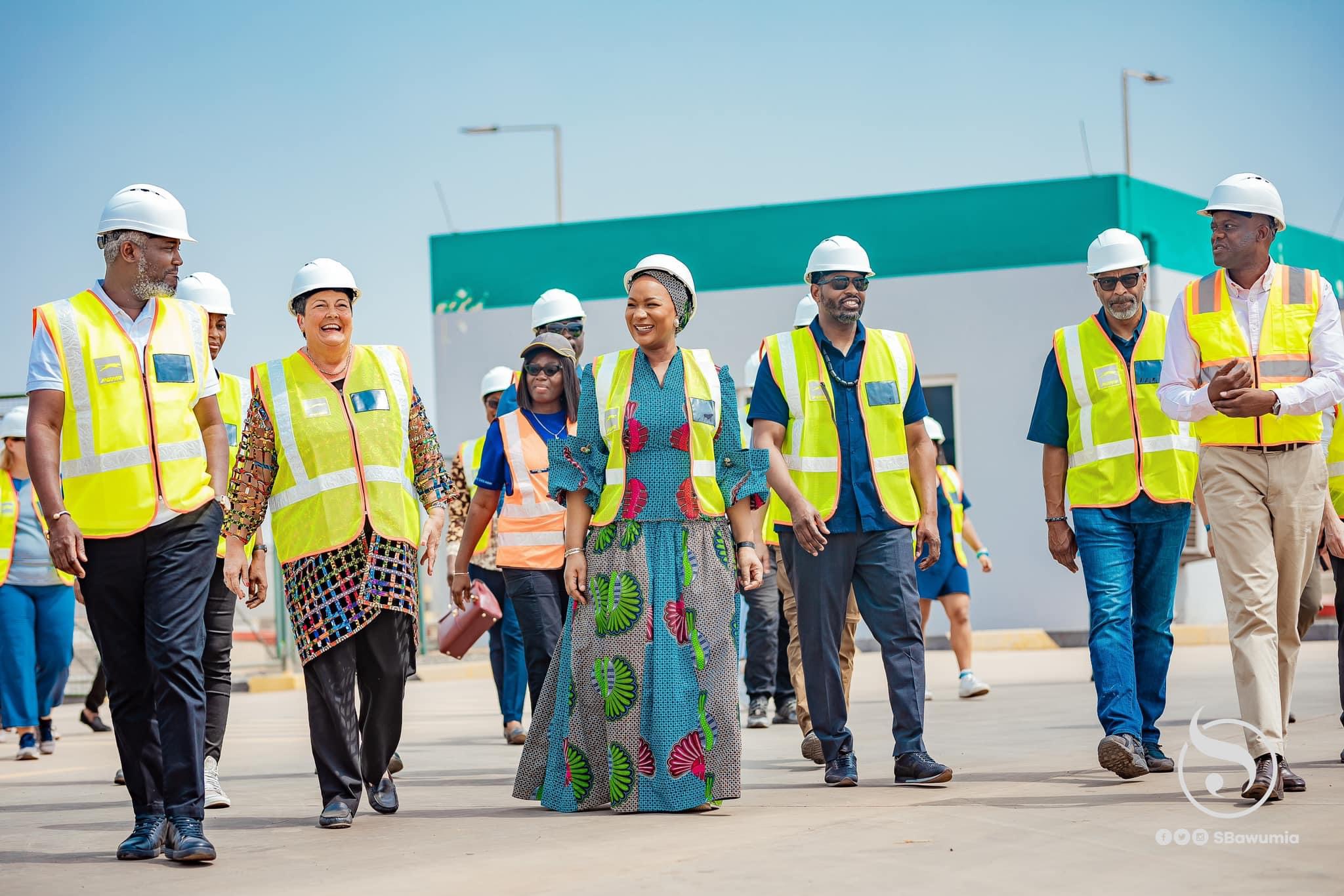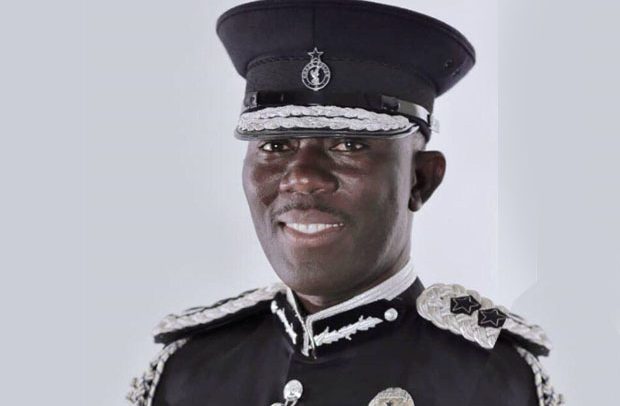
Recruits of the Nation Builder’s Corps (NaBCo) graduated today at an elaborate ceremony held at the Independence Square in Accra.
The president, Nana Addo Dankwa Akufo-Addo, vice president Dr Mahamadu Bawumia graced the occasion with many other ministers and other appointees present to witness the graduation of the 100,000 jobless tertiary graduates.
Some ¢3 billion of tax payers money has been pumped into the programme in which recruits are expected to earn ¢700 monthly allowance for three years.
President Akufo-Addo admonished the recruits to give Ghanaians their money’s worth as the taxpayer’s money will be expended on them.
“…you must bear in mind that government is investing some ¢3 billion of taxpayers money into this programme. Your monthly ¢700 is not free money and you must earn every pesewa of it which I’m confident you’ll do,” he said.
Already some civil society groups are questioning the sustainability of the programme following the countless scandals that similar government interventions have had in the past.
IMANI Africa is tempted to agree but says it will adopt a wait and see attitude.
Senior Vice President, Kofi Bentil said “It is simplistic to just come out and condemn NaBCo and it is also simplistic to just come out and hail it as a solution.”
“The truth is that it is neither condemnable nor the solution we need to start subjecting these things to real economic analysis and try to find a way to ensure they can earn the investment we put in them,” he added.
Mr Bentil is certain that if subjected to economic scrutiny, NaBCo like the rest will fall short simply because they are driven by politics.
He believes the programme can only be sustainable if it can do just as the president has directed.
“The president said ‘earn every pesewa which his to say if we spend a million cedis on NaBCo then it should be able to produce more than a million cedis then you can sustain it. That is economic analysis.
“So if you ask me if it is sustainable, what I will say is that it is sustainable as long as there is the political will and energy to sustain it but whether it is economically sustainable I think the calculations will show otherwise.”
Mr Bentil also doesn’t think the solution to the country’s growing unemployment figures is NaBCo because government is doing something to ”paper over the problem and we don’t solve them.”
However, National Coordinator of the scheme, Dr Ibrahim Anyars is confident that the programme will live up to the billing.
He said the work that has been done on NaBCo in terms of credibility and value for money cannot be compared to any other scheme that has been rolled out in the past.
“I think that we should give this a chance. There is a lot of skepticism that does not serve us well.
“From what has been done on the NaBCo so far the suggestion has always been that the target is to use them [recruits] in critical areas of the economy,” he added.
Dr Anyars explained that the contribution NaBCo is expected to make to the economy cannot be quantified, especially in education.
“I don’t know how much you can quantify the contribution that could be made to drive up standards within education in the realm of guidance and counseling.
“And in areas to do with support in the classroom to deliver effective learning and teaching even without direct instruction, in the areas of sports and agility in areas to do with nutrition and diet in terms of matron assistantship. With the Revenue mobilisation bit, you realise that, that is an area NaBCo can make a definite contribution for anyone to see,” he added.
He said the scheme has been specifically created to assist in these critical areas and that “while you may see it theoretical at this point, the suggestion that this will create multiple folds beyond what has been invested, we would have to give it a chance and see what the future holds.
“But to have any sort of rush analysis at this present time based on things that are unlike the NaBCo will probably be misleading,” he said. Read Full Story










Facebook
Twitter
Pinterest
Instagram
Google+
YouTube
LinkedIn
RSS